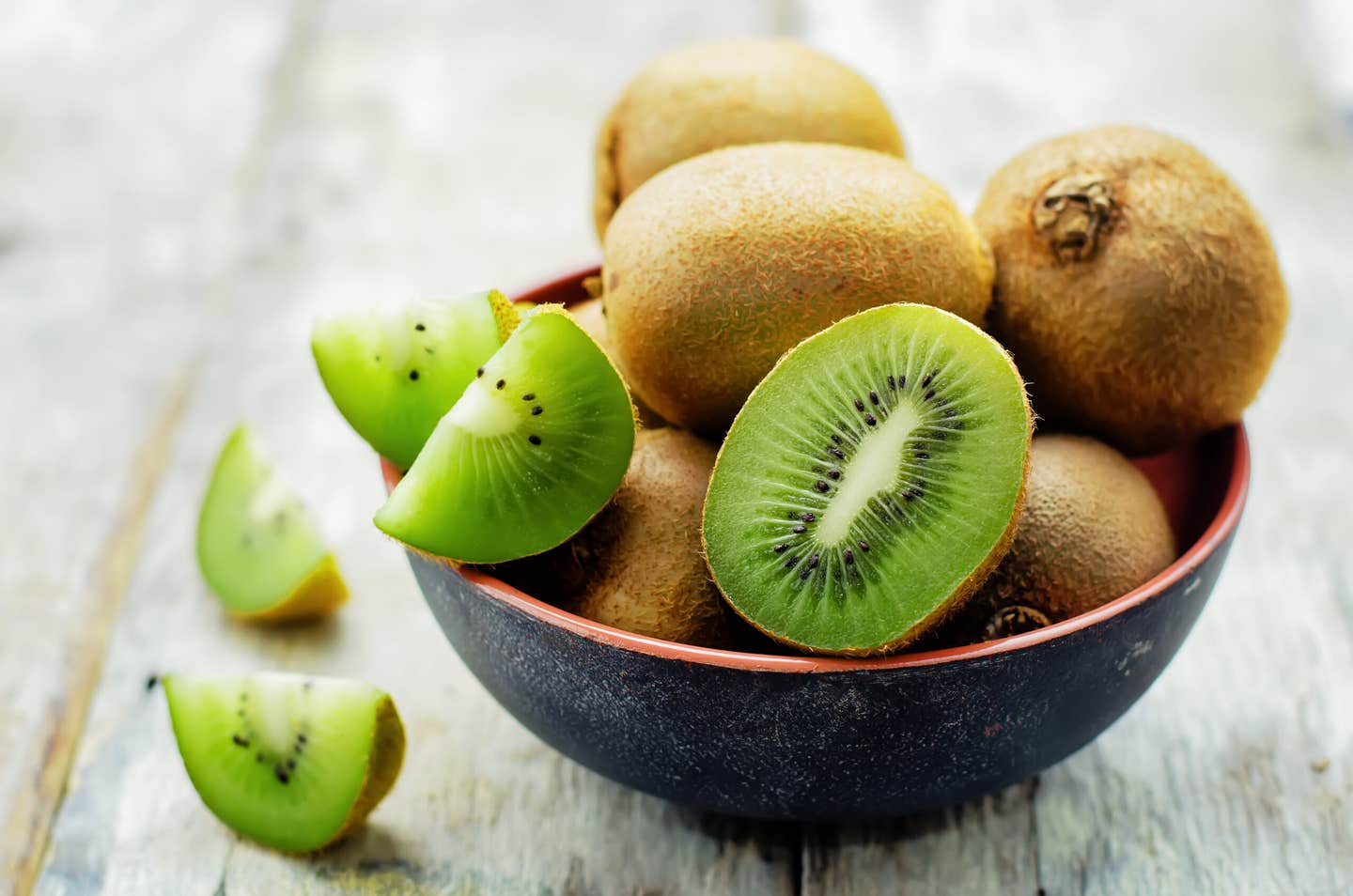Kiwi, prunes, and rye bread among new remedies for constipation
New evidence-based dietary guidelines reveal foods and supplements that can help relieve chronic constipation safely and effectively.

A landmark study from King’s College London introduces the first evidence-based dietary guidelines for chronic constipation. (CREDIT: Shutterstock)
Millions of adults all over the world endure chronic constipation — an awkward situation marked by hard, painful, or infrequent bowel movements which disrupt daily life. Even though prevalent, advice on how it can be treated via diet has been vague or outdated.
This is all about to change with the release of a first-of-its-kind study by investigators at King's College London. The study introduces the first collection of general, evidence-based food recommendations specifically crafted for adults with chronic idiopathic constipation — that is, constipation without another disease as its cause.
A Scientific Step Forward
Everyone has been hearing the same thing for years: eat more fiber, drink more water, and get more exercise. But doctors and nutritionists never had any solid evidence to show us which foods or supplements actually do work. This new research changes all that by grounding 59 nutritional recommendations on 75 clinical trials under the rigorous GRADE system — short for Grading of Recommendations, Assessment, Development and Evaluation.
Led by Dr. Eirini Dimidi, Reader in Nutritional Sciences, King's College London, and Professor Kevin Whelan, Professor of Dietetics, the researchers employed four systematic reviews and meta-analyses to identify the foods, beverages, and supplements that increase the frequency, consistency, and overall comfort of stool. The findings were assessed and voted upon by an interprofessional panel of dietitians, gastroenterologists, and general practitioners.
“This is the first time we’ve provided direction on what dietary approaches could genuinely help,” said Dr. Dimidi. “Being able to improve this condition through dietary changes would allow people to self-manage their symptoms more and, hopefully, improve their quality of life.”
What the Research Found
The review grouped interventions into three broad groups: food, beverages, and dietary supplements. Both a strength of evidence rating and a level of recommendation rating were assigned to each. There were 27 strong recommendations and 32 qualified recommendations out of 59 recommendations.
The quality of the evidence was varied: eight had moderate-quality evidence supporting them, while most were supported by low or very low evidence — an indication of how under-researched constipation is. However, several trends were evident.
Helpful Foods: Kiwifruit, Prunes, Rye Bread and Fiber
Fiber supplements remain the cornerstone of care for constipation, but the research indicates that not all fibers are created equal. Psyllium, a type of soluble fiber found in most over-the-counter fiber aids, showed consistent benefits in increasing stool frequency and texture scores. Less soluble fibers may worsen symptoms in some patients.
While a "high-fiber diet" has long been promoted as the preferred treatment, the research revealed little evidence to support that for chronic constipation itself. "Having a high-fiber diet has many benefits for overall health," said Dr. Dimidi, "but our advice found that there simply isn't enough evidence to advise that it actually helps in constipation."
Some foods emerged as particularly beneficial. Kiwifruit, prunes, and rye bread all had recommendation statements based on multiple randomized trials. They were all found to improve frequency and ease of bowel movements. Kiwifruit contains enzymes that can help with digestion naturally, prunes are an old folk remedy for constipation because they contain sorbitol, and rye bread, which contains more fiber than white bread, could be beneficial too by adding bulk and quality to stool.
Supplements That Help: Magnesium Oxide and Probiotics
Among all the supplements that were tried, magnesium oxide and some probiotics showed impressive gains. Magnesium oxide is a weak osmotic laxative that pulls water to the intestines to facilitate the passage of stool.
Probiotics — beneficial bacteria that promote digestive balance — also increased stool frequency in some cases. However, results varied by specific strain of bacteria, and more research is needed to determine which to use. Synbiotics, mixtures of prebiotics and probiotics, showed some but are less well-studied.
Plant stimulant laxative senna was less favored. Although useful in certain contexts, researchers cautioned against chronic use because of potential side effects and risk of addiction.
Hydration enters into the picture, too. Drinking water that contains minerals such as magnesium and sulfate was linked with modest increases in bowel frequency. These are mild natural laxatives. Specialists recommend drinking high-mineral water as part of an overall regimen of hydration, not in isolation.
Why These Guidelines Matter
Until recently, however, most advice on constipation was generic and sometimes unrealistic. These new guidelines offer health professionals — and patients — an evidence-based map.
"Concise and standardised guidelines are an auspicious step towards allowing health practitioners and patients," Professor Whelan said. "Constipated individuals can now be provided with up-to-date advice informed by the best available evidence.".
For chronic constipation in adults, the guidelines are a good reference point. Doctors and dietitians can now recommend patients begin with psyllium supplements, include probiotic strains that have been shown to be helpful, introduce fruits such as kiwifruit and prunes, and switch to rye bread instead of white bread. Mineral-rich water should be consumed. Magnesium oxide may be attempted if needed, while stimulant laxatives such as senna must be used cautiously.
Room for Improvement
The researchers stressed that the evidence base is weak. A lot of the reviewed studies were small in size and short-term. Few assessed whole-diet patterns or long-term outcomes. Hence, the authors set 12 top research priorities among which some highlighted the need for stronger clinical trials and studies investigating how multiple interventions — such as fiber, probiotics, and diet — might work together.
Most importantly, they also hope that the guidelines encourage patients as well as clinicians to think outside the box with one-size-fits-all solutions. Constipation is so individual in each person, and what works for one will not work for another. The new guidelines make it more likely to tailor care to each person's individualized needs.
Practical Implications of the Research
These new recommendations have the potential to revolutionize treatment for constipation worldwide. For doctors and nutritionists, they provide a scientifically based set of tools to prescribe effective dietary therapies.
For patients, the research promises self-treatment through low-cost, highly accessible interventions like fiber supplements, probiotics, and whole foods.
With additional research, such findings could develop into complete dietary models for sustaining gut health over the long term, alleviating the requirements for medication and enhancing the quality of life for millions.
Research findings are available online in the Journal of Human Nutrition & Dietetics and Neurogastroenterology.
Related Stories
- Harvard study links Mediterranean diet to constipation and digestive relief
- Crucial link discovered between bowel movement frequency and overall health
- Breakthrough swallowable pill tracks gut inflammation in real time
Like these kind of feel good stories? Get The Brighter Side of News' newsletter.
Rebecca Shavit
Writer
Based in Los Angeles, Rebecca Shavit is a dedicated science and technology journalist who writes for The Brighter Side of News, an online publication committed to highlighting positive and transformative stories from around the world. Her reporting spans a wide range of topics, from cutting-edge medical breakthroughs to historical discoveries and innovations. With a keen ability to translate complex concepts into engaging and accessible stories, she makes science and innovation relatable to a broad audience.



